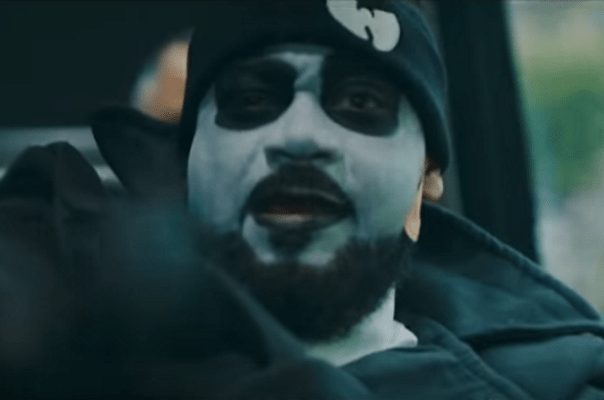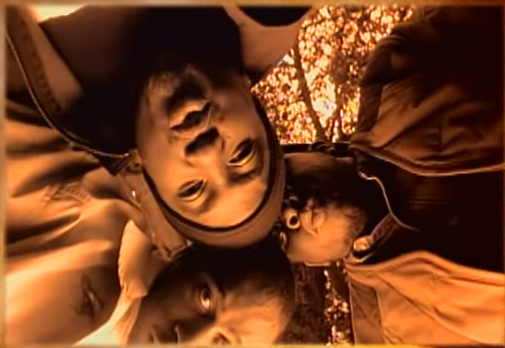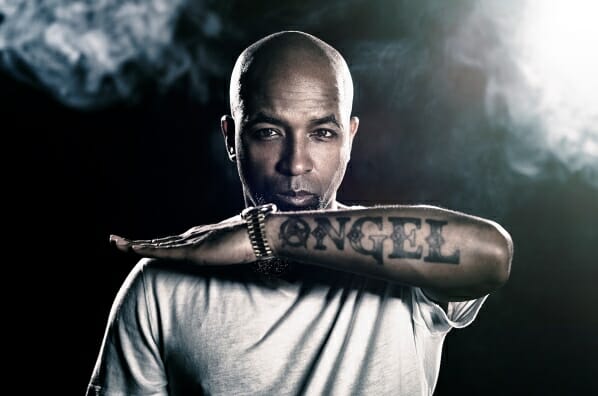My mom was always very politically and socially conscious. As a young girl in the Bronx, she served on the NAACP youth council. She did her best to pass that legacy on to me, but unfortunately, I wasn’t ready to appreciate the value of such things. I wasn’t aware of my Blackness and what it meant. I was still more concerned with whether or not Optimus Prime would be returning from the dead.
Every February, my mom watched televised specials about the life of Dr. Martin Luther King Jr. About a year after we moved down to Lithonia, GA, PBS began airing a documentary series entitled Eyes on the Prize. This thing was 14 hours long, and my mom devoured all of it. I was just bored silly by it.
 I was much more taken, however, by a mini-series entitled Shaka Zulu which aired on Fox later that same year. It was revelation to me. I was mesmerized by the scenes where he trained the Zulu to fight in various battle formations. Shaka was cruel and arrogant, yet intelligent, powerful and as Black as the day was long. That last bit of information still didn’t register with me the way that it should have. Over the next couple of years, that would change drastically by way of a certain rap group.
I was much more taken, however, by a mini-series entitled Shaka Zulu which aired on Fox later that same year. It was revelation to me. I was mesmerized by the scenes where he trained the Zulu to fight in various battle formations. Shaka was cruel and arrogant, yet intelligent, powerful and as Black as the day was long. That last bit of information still didn’t register with me the way that it should have. Over the next couple of years, that would change drastically by way of a certain rap group.
My cousin “Tone” had moved from England to Parkchester, a residential neighborhood in the Bronx. He arrived just as Hip-Hop was making the transition from block parties to vinyl. Apart from collecting records, he was a very accomplished dancer. I remember pictures of him doing his thing at Action Park in New Jersey, with a crowd of people gathered around him. His talents even landed him in a newspaper once.
When popping, locking, and breaking became passé, Tone made the transition to DJ’ing after his family had relocated to Decatur, GA. He’d amassed a vast record collection by then, and his crates were filled with all sorts of rarities and gems. I started to instantly recognize the logos of different record labels. The Sugar Hill Records logo always stuck out to me because it looked like something aimed at small children.
As I started buying cassettes on my own, other brands came to my attention. While rifling through my cousin’s record crates, I came across a few Public Enemy records. Tone began mentioning them more and more, as did my cousin Kevin who had recently moved down from Long Island. He even had a poster of them on his bedroom wall. All of the Public Enemy records my cousin owned had the letters D and J on the sleeve in bold print.
 The L.L. Cool J album I had bought a few months prior carried that same logo. Not only did my cousin speak favorably about these guys, but they were affiliated with L.L. Cool J. If that wasn’t recommendation enough in my eleven year old mind, nothing was. Tone was very touchy about his records, and didn’t like me playing them when he wasn’t there to supervise.
The L.L. Cool J album I had bought a few months prior carried that same logo. Not only did my cousin speak favorably about these guys, but they were affiliated with L.L. Cool J. If that wasn’t recommendation enough in my eleven year old mind, nothing was. Tone was very touchy about his records, and didn’t like me playing them when he wasn’t there to supervise.
Early in 1988, I’d heard a song on “Fresh Party” that hit me like an alarm clock waking me out of a sound sleep. I had no idea what the rappers were talking about, or who they were. The DJ informed listeners that the song was called “Bring the Noise” by Public Enemy and the track sounded like a four alarm fire. It was loud and wild; seemingly lacking in any sort of musical discipline. Yet, I LOVED it! My best friend at the time, Dizzy (Pronounced Deezy) Dee, didn’t get my enthusiasm. As always, he complained “I ain’t understand what they was sayin.’” Neither did I, but I loved how it sounded and felt.
On the Soul Train awards that year, the announcer introduced a member of Public Enemy as a co-presenter for one of the award categories. All I remember is a guy in bright red outfit and cap, with sunglasses and a giant clock hanging around his neck, looking like he’d been struck by a lightening bolt and lab atomized as a result. He ripped off his glasses and began admonishing the audience, asking them what they were looking at. My mom laughed. I was intrigued. Now I HAD to know who these guys were.
Turns out Tony had just bought the twelve single for “Bring the Noise.” It was on the soundtrack for a movie called Less Than Zero. The movie didn’t have any ninjas or robots in it, so I could have cared less. L.L. Cool J had also done songs for this film. “Fresh Party” had been playing a brand new joint from him. I didn’t even realize who it was until I saw the record sleeve: “Jack the Ripper.” That song achieved the impossible by making L.L. seem even harder than any of his previous records.
Tone would hang out with me and my father on the weekends every once in a while. Whenever there was a Mom & Pop record store nearby, me and Tone would break away to see what the latest releases were. In the spring, Tone started inquiring about a new Public Enemy album. No one seemed to know when or if it was coming out. In time, my anticipation outpaced his. Until then, we’d have to make due with Follow The Leader, By All Means Necessary, and Long Live The Kane.
That summer, while my cousin Cee was staying with us, he put me on to what PE was about He told me they were revolutionaries. “What’s that?” I asked. “It means they want to blow up the government” he said. That statement forced me into an uneasy silence. While I was never exactly patriotic as a kid, I had gotten the idea that it was a very bad thing to be against your own country. In the year leading up to my introduction to Public Enemy, I’d been devouring films like Rambo: First Blood Part II and Commando, full of right wing propaganda. Here I had two different sets of “heroes” telling me wildly different things. My mom, ever the peaceful, progressive Black Woman, was staunchly opposed to both messages. She hated ultra-violent films and thought revolutionary messages unfit for young ears. Nevertheless, I navigated around the rules she set.
Both Tone and Cee, much to my mom’s chagrin, began cluing me into a few things about the world I lived in. Contrary to Lethal Weapon and Robocop, policemen weren’t always the “good guys.” In fact, some of them didn’t like people who looked like me very much. Neither, for that matter, did the government. Those drug dealers on the street that I had always been taught were “bad guys?” Well, that wasn’t always the case. In fact, they were only selling what thePpresident gave them to sell. They were just making money.
The President sells drugs?! I thought he was the king of the good guys. On the day that my mom went out to vote that November, Cee informed me that “The system doesn’t work so voting makes no sense.” For the first time, everything I had learned in school, in the movies, and from my parents (to an extent) was being challenged. This new group I’d discovered was opposed to everything I was raised to believe.
 It Takes a Nation of Millions to Hold Us Back finally dropped. I hadn’t the foggiest notion as to what that meant, but I could tell by the cover that it was indeed serious business. The album sleeve contained not one, but two vinyl discs. In my Cousin Kevin’s basement, I heard the first few tracks. One in particular appealed to my kiddie sensibilities: “Cold Lampin’ With Flavor.” The shit was just crazy, from the piercing horns to Flavor Flav’s insane ramblings. It was all I could do to keep myself still. “This is great!” I thought to myself.
It Takes a Nation of Millions to Hold Us Back finally dropped. I hadn’t the foggiest notion as to what that meant, but I could tell by the cover that it was indeed serious business. The album sleeve contained not one, but two vinyl discs. In my Cousin Kevin’s basement, I heard the first few tracks. One in particular appealed to my kiddie sensibilities: “Cold Lampin’ With Flavor.” The shit was just crazy, from the piercing horns to Flavor Flav’s insane ramblings. It was all I could do to keep myself still. “This is great!” I thought to myself.
On a trip to South Dekalb Mall, my cousin Cee bought the cassette and when we got home, he popped it into my boombox. It was like hearing an alien broadcast. Chuck D sounded like he was giving speeches. I didn’t have to understand this music; I FELT it.
Cee told me what the songs were about. After playing the first few bars of the imposing “Black Steel in the Hour of Chaos” Cee explained the lyrics to me. Chuck D refused to be drafted into Uncle Sam’s army. That refusal got him thrown into jail, after which the S1W’s broke him free. That was some action movie shit! Right up my alley. These guys were superheroes.
I made a dub of Cee’s tape. After he moved back to NY, I listened to it incessantly. I focused on “Rebel Without a Pause.” The sample of the JB’s “The Grunt” had me in a vice grip and created an entire world inside my head. To this day, I consider that track a call to arms. Play it loudly in a room full of revolutionary minded individuals, and you just might start a riot.
It Takes A Nation lit a fire in my soul that still burns to today. Chuck D and the Bomb Squad likely knew that listeners my age couldn’t grasp such complex ideas, and made sure to deliver them with fire and energy. We FELT the message, even if we couldn’t yet fully understand it. It was sonic communication. I agree with Kool Moe Dee’s summation that Chuck D is the hardest rapper ever. Your favorite trap star doesn’t come close. Young Jeezy motivates young men to hustle. Chuck D motivated them to fight a war. Which one do you think is scarier to the powers that be?
Follow Malice Intended on Twitter @ http://twitter.com/renaissance1977
Follow Us on Twitter @ http://twitter.com/planetill
Become a citizen of Planet Ill. Join our Forums
Join Us on the Planet Ill Facebook Group for more discussion
Follow us on Networked Blogs






That was a trip down memory lane…. Very inspirational as was and is the group. Black people are not “Felling” that now because Black people are no longer the same. Black have lost their balls and some are giving them away. You still have “Closet” revolutionaries out here who listen to this music late at night alone, hoping for this return of ‘Brotherhood” and maybe one day it might. It will take a lightining strike. Not another Black Man perfectly innocent being gunned down because that happens so often Blacks are immne to it. It will take something larger. When that happens the seeds planted by “P.E.”……will bloom.